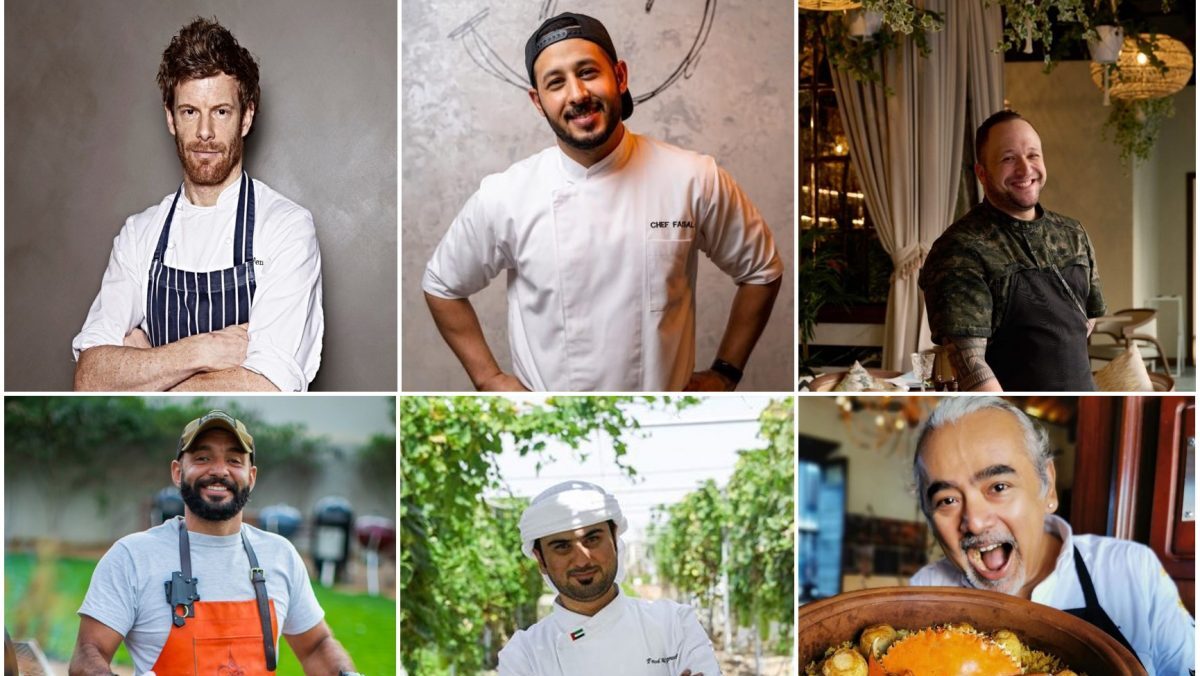The Gulf’s chefs, food influencers, and restaurant founders are reshaping the region’s food culture. From Dubai to Doha, from local kitchens to luxury dining spaces, the Gulf’s culinary scene has witnessed incredible growth over the last decade. This article dives deep into exclusive interviews with culinary leaders who are not only cooking delicious meals but also setting powerful trends.
We spoke to chefs, influencers, and founders across the UAE, Qatar, Bahrain, Saudi Arabia, and Oman to understand what drives them, what challenges they face, and what advice they offer for the future of Gulf food culture.
Why the Gulf’s Culinary Industry is Booming
The Gulf’s chefs, food influencers, and restaurant founders have one thing in common — they’re part of a growing movement that blends tradition, innovation, and global exposure.
A Diverse Culinary Mix
Many chefs we spoke to mentioned how the Gulf offers a fusion of cuisines — Middle Eastern, Asian, Mediterranean, and even Latin American. This diversity gives them room to experiment.
“In Dubai, customers are ready to try new things. That freedom allows us to be creative with our menus,” says Chef Reem Al-Mansoori, a Bahraini chef and restaurant owner.
Top Insights from Gulf’s Chefs
We interviewed over a dozen Gulf’s chefs, food influencers, and restaurant founders to gather expert insights. Here are some standout points:
1. Staying Authentic in a Global Market

Several chefs emphasized the importance of staying true to local roots.
“Even if we modernize a dish, I make sure it holds onto its original flavor and purpose,” explains Chef Saeed from Oman, who specializes in heritage-based cuisine.
2. The Struggle with Staff and Skills
Finding and retaining skilled kitchen staff was cited as one of the toughest challenges.
“We often hire from abroad, but language barriers and training gaps affect service,” says Chef Layla, who runs three restaurants in Abu Dhabi.

What Food Influencers Say About the Industry
Food influencers in the Gulf play a key role in shaping restaurant success. Many of them have large social media followings and the power to affect dining trends overnight.
3. The Pressure to Stay Relevant
With competition rising, influencers feel they must constantly create fresh, engaging content.
“I post three times a day and visit at least five restaurants a week. It’s exciting but exhausting,” shares Mohammed Eats, a popular Saudi food vlogger.
4. Ethical Promotions: Real Reviews vs. Paid Posts
Some influencers spoke openly about the pressure to provide positive reviews due to paid collaborations.
“I’ve turned down offers from places I didn’t like. It hurts financially, but it builds trust,” says Fatima Tastes, a Qatari influencer with over 600k followers.
Voices of Restaurant Founders in the Gulf
The founders we spoke to are business-minded visionaries who turned culinary passion into profit — but not without struggles.
5. Startup Costs Are High
Opening a restaurant in cities like Dubai or Doha comes with significant investment. Rent, licenses, and staffing quickly pile up.
“I had to take a bank loan and still work part-time during the first year,” says Ahmed Al-Fahad, founder of a popular Kuwaiti bistro.
6. Adapting to Food Delivery Trends
COVID-19 changed how restaurants operate, pushing many to focus on delivery apps and cloud kitchens.
“We now earn more from delivery than dine-in, and that’s a big shift,” mentions Noura Al-Rashid, owner of a vegan brand in Riyadh.

The Power of Collaboration in the Gulf’s Culinary Space
Across our interviews, one recurring theme was collaboration. Chefs are teaming up with influencers, restaurants are hosting pop-up events, and influencers are launching their own food brands.
7. Building Communities, Not Just Menus
More than ever, Gulf’s chefs, food influencers, and restaurant founders are building communities. They are mentoring each other, sharing audiences, and even partnering for causes like food sustainability.
“We hosted a food waste awareness week with five influencers and two restaurants. It helped raise funds and educate people,” says Maha K, founder of a sustainability-focused café in Dubai.
Advice from the Experts for Aspiring Food Creators
Whether you’re a budding chef, future influencer, or dream of opening your own restaurant, the Gulf’s culinary veterans have advice:
- Stay consistent with your brand and style.
- Understand your audience before creating menus or content.
- Invest in training and don’t rush expansion.
- Be transparent in your reviews or promotions.
- Collaborate, not compete — there’s room for everyone.
Conclusion: What the Future Holds
The Gulf’s chefs, food influencers, and restaurant founders have proven that food is more than just a business — it’s a cultural movement. With the rise of digital platforms, evolving tastes, and global interest in Middle Eastern cuisine, the Gulf region is becoming a hotspot for food innovation.
As they continue to navigate challenges like staffing, competition, and changing consumer behavior, one thing remains clear — passion and authenticity still rule the kitchen.
read more- Cultural Exchange Programs: 7 Positive Ways They’re Enriching Gulf Arts



